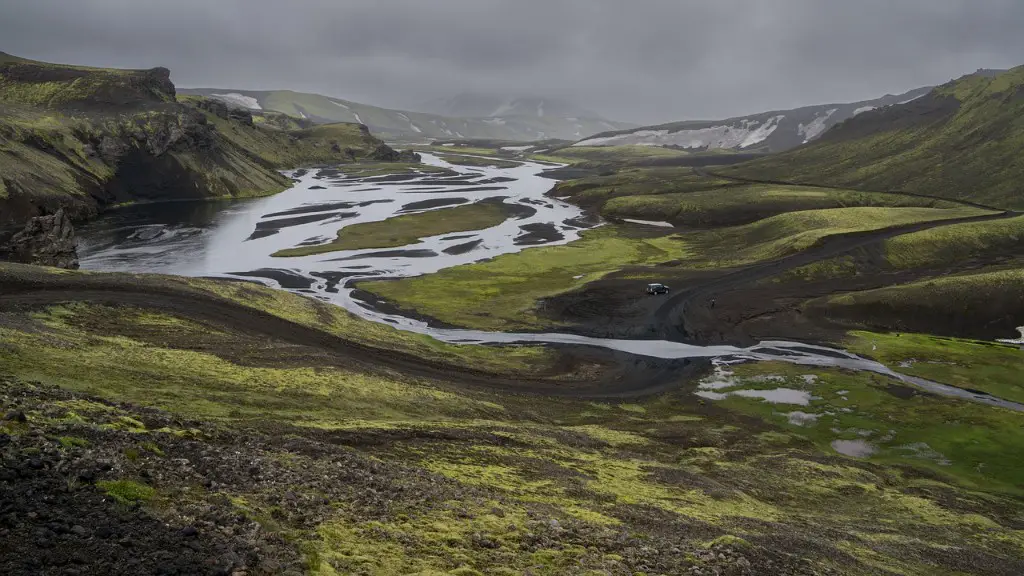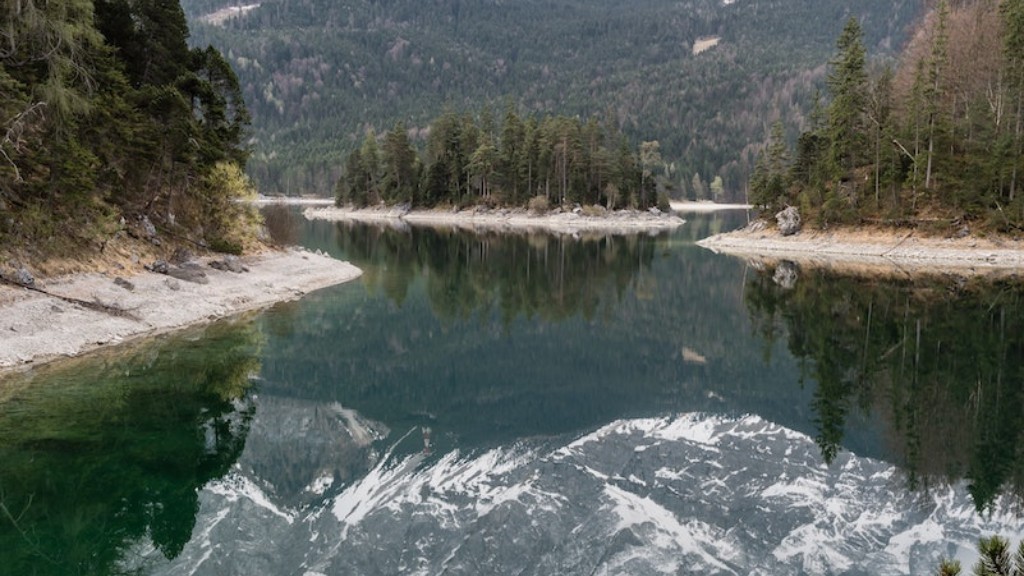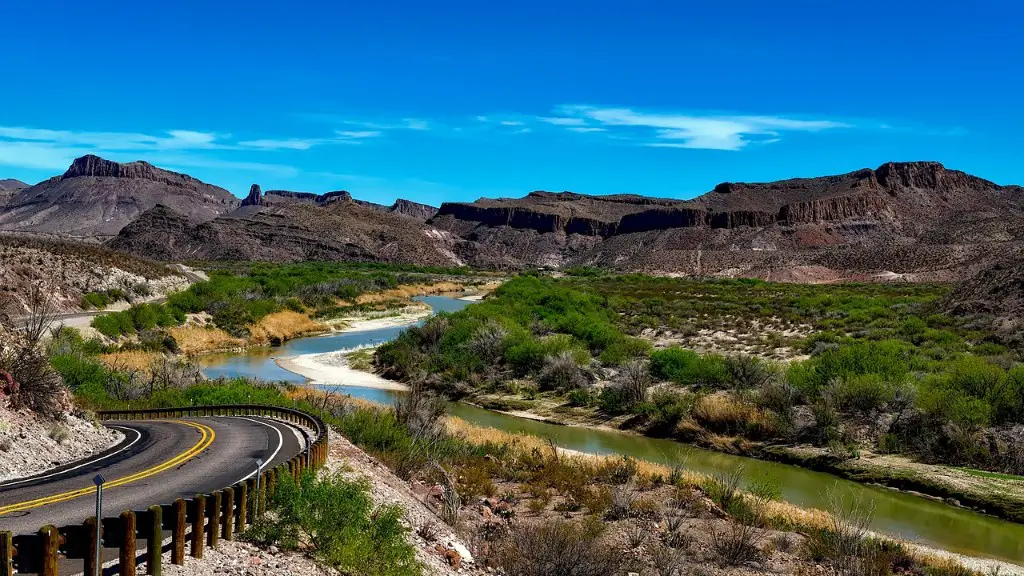The Nile River is not just a geographical landmark for Egypt, but a strong component of its identity and a source of life for many of its people. It is no secret that the Nile River has been a vital component of life for the people of Egypt for many thousands of years. As such, the Nile River is not only of great importance to Egypt but also to the other countries that rely on it for sustenance.
Egypt is a largely arid country which receives very little annual rainfall. The Nile River’s annual flooding provides this otherwise drought-prone country with consistent water supply. This flooding also helps to fertilise the soil and replenish lands, allowing Egyptians to grow various crops and support their local economy. As of today, the Nile River remains the primary source of freshwater in Egypt and its surrounding countries.
In addition, the Nile River has been an important factor in the rise of the world’s first recorded civilization. Early Egyptians relied on their knowledge on floods for the protection of their settlements and agriculture, the latter of which helped them to support a growing population. This historical connection makes the Nile River an important part of the cultural heritage of Egypt and its people.
The importance of the Nile River to Egypt can also be seen in the ancient cities that it has played a role in building. From the remains of the pyramids at Giza to Thebes in Upper Egypt and Luxor in Lower Egypt, the Nile River is credited with sustaining, connecting and shaping the ancient Egyptian empire. Moreover, the Nile River has been the subject of many Egyptian religious beliefs and this is evidenced in many of the works of art and literature that are still in existence today.
In the present day, the Nile River remains an important resource for Egypt. It is relied upon for irrigation, transportation of goods, fishing and other forms of trade. Moreover, the economy of the cities located on the banks of the Nile River has grown significantly in the recent past and is now an important contributor to the national economy. All this is testament to the significance of the Nile River to Egypt, a country whose future remains very much dependant on its ancient river.
On the political front, the two main countries along the Nile River, Egypt and Sudan, are negotiating the issue of how to share the waters of the Nile in a way that is favorable to them both. This is a complex problem that has been and continues to be a source of tension between the two countries. Last but not least, the Nile River is a source of hope in the face of climate change and rising sea levels. With the help of international collective effort, the Nile River could be a key factor in helping Egypt to adapt to climate change in years to come.
Environmental Impact
The environmental impact of the Nile River on Egypt is substantial. On a local scale, the river’s water is heavily polluted as it runs through the densely populated cities and villages of the country. In addition to this, the river’s natural course has been altered by dams, irrigation projects and other engineering works that have allowed Egypt to reap the benefits of the river. As such, the ecosystem of the river has been severely disrupted, impacting both wildlife and humans.
The silt that is deposited by the Nile River is also a major issue. In particular, this silt is an important factor in the formation of lowlands across Egypt, most notably the Nile Delta. Additionally, the silt is important in providing nutrients to the soil, something that is vital for the sustenance of agriculture in the country. Nevertheless, it is also a source of excess nutrients, resulting in algal blooms that can result in oxygen levels dropping, causing harm to the environment.
The overuse of the Nile River’s resources is also of great concern. As the population of Egypt continues to grow, the demand for water from the Nile River has also grown. This is evidenced by the large increase of water abstractions over the past decades. In addition to this, the farming practices and urban development along the banks of the Nile have led to the destruction of the river’s wetlands, adversely affecting the fertility of the soil.
Climate change is also having an effect on the Nile River, with it becoming increasingly difficult to predict the flow of the river. This has caused uncertainty on the status of annual floods and their effects, making it harder for the people of Egypt to plan for the future.
Restoration Efforts
Egypt is aware of the adverse effects its actions have had on the river and is attempting to restore its ecosystems in cooperation with organisations such as the UN Environment’s International River Foundation. These efforts have included implementation of stricter regulations on water extraction, as well as afforestation of the Nile watershed.
In addition to this, the government has begun to introduce sustainable farming methods and technology to help cope with climate change. The Nile Basin Development Vision 2030 is one such project that aims to provide a more sustainable future for the Nile basin and its inhabitants.
Finally, the government has also been encouraging public participation in the restoration of the Nile River. Programs such as “The Nile – Our Future”, know as “Egypt Green”, have been set up to generate public awareness and commitment to restoring the natural ecosystems of the Nile.
Cultural Significance
Today, the Nile River continues to be of great cultural importance to the people of Egypt. As a symbol of life and fertility, the river plays an important role in Egyptian culture. For example, the solar-powered feluccas, or sailing vessels, that dot the river’s banks serve as a reminder of the country’s ancient past. Moreover, the people of Egypt view the river as a source of recreation and spiritual rejuvenation, a reflection of the importance of the Nile to their daily lives.
Likewise, the Nile River is a popular subject of art, literature and music in Egypt. For example, the Nile is celebrated in countless works of fiction, as well as in many of the country’s popular songs. Similarly, the river has been the focus of popular theatre, often incorporating traditional instruments and musical styles.
The Nile River also has religious significance, with some of the country’s most important religious sites located along the banks of the river. The beautiful, serene landscapes of the Nile Valley have played an important role in inspiring pilgrimage and funeral rituals, as well as popular religious practices that remain popular to this day.
In sum, the Nile River is an integral part of Egypt’s cultural heritage and identity, one which has shaped it into what it is today. It is no wonder why the river is such an important symbol to the people of Egypt, both in terms of their ancient past and their modern day lives.
Protection
The importance of the Nile River to Egypt has led to the country introducing measures to protect it. This includes establishing the Nile River Authority to manage and protect the river’s resources, as well as setting up various protected areas along the Nile in order to protect its unique fauna and flora.
Furthermore, the Egyptian government has recently announced plans to create a new zone along the Banks of the Nile known as the Nile Valley Ecological Corridor. This corridor would stretch from Aswan in the south to Alexandria in the north, and is intended to ensure the preservation of biodiversity in the region as well and prevent inappropriate development within the corridor’s boundaries.
Many international organisations have also shown their support for the continued protection of the Nile River. UNESCO is currently in the process of proposing the River Nile’s biosphere reserve for UNESCO status. If accepted, it would be an immense step forward for the protection of the river’s ecosystems and species.
Ambitious plans such as this take hope, effort and substantial funds to be realised. Egypt is certainly stepping in the right direction in terms of protecting the Nile River, but needs to be met with support from the international community if it is to protect it in the long-term.
Conclusion
The Nile River is a gift to Egypt, one that has been of critical importance to the Egyptian people since ancient times. The Nile has shaped Egypt’s culture, commerce, politics and economy for thousands of years, and is essential for its continued sustenance. It is therefore of utmost importance for Egypt to protect this precious resource for future generations, and for the international community to assist in this cause.





